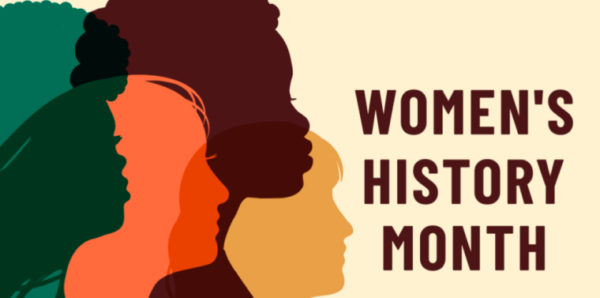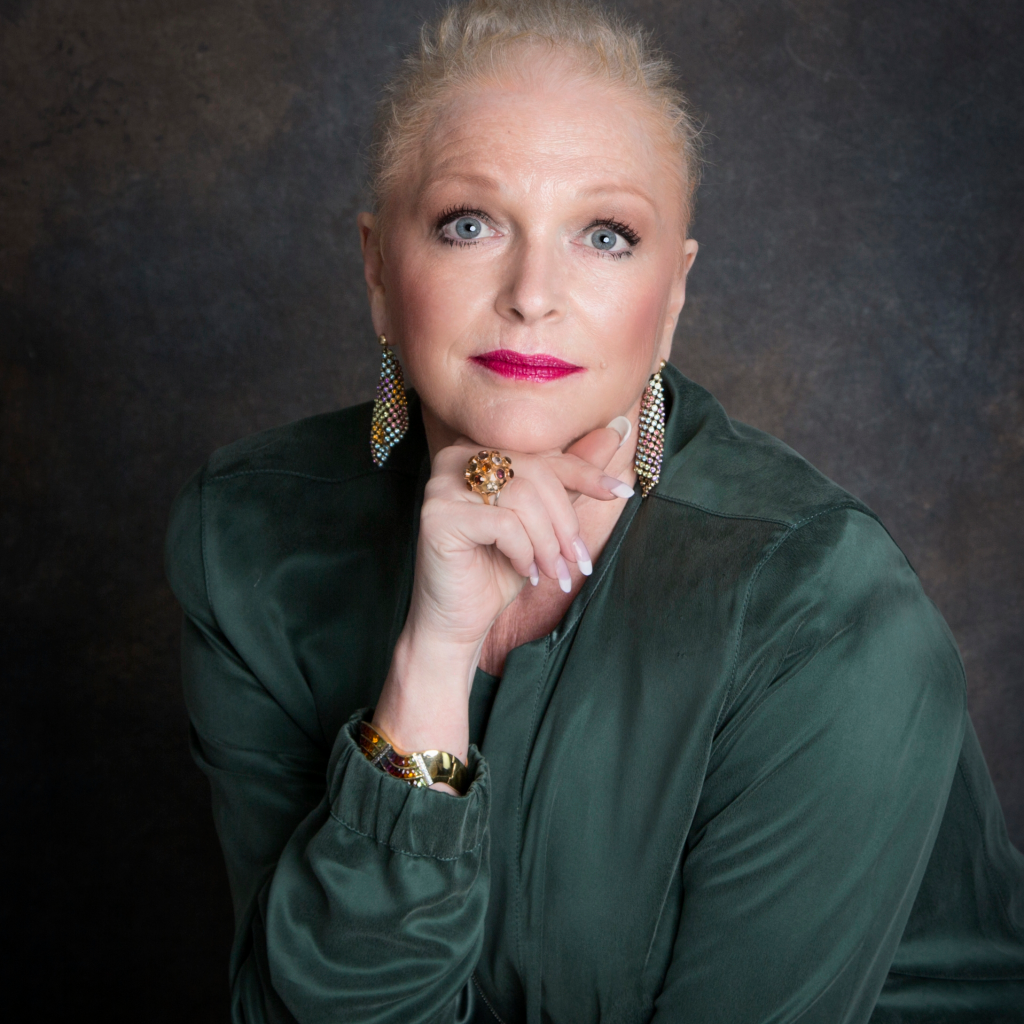The Power of Being Yourself – A Q&A with RCAP Solutions President & CEO Karen A. Koller

[This interview is part of RCAP’s series to celebrate Women’s History Month and highlight the leadership and wisdom of the wonderful women who support this network]
In today’s reality where so many women have had to and still must conform and stifle themselves to thrive in workplace environments, it was a breath of fresh air to chat with Karen Koller.
Karen’s legacy as a bold leader and changemaker supporting community and economic development in the Northeast U.S. and the U.S. Caribbean has spanned decades. She is the President & Chief Executive Officer (CEO) of RCAP Solutions Inc., and serves as a Board member for the Rural Community Assistance Partnership (RCAP), a national network of non-profit partners across the country helping rural and small communities build capacity through access to safe drinking water, sanitary wastewater and economic development.
From beginnings, where she was often set up to fail and judged negatively as a woman leader, to transforming and growing RCAP Solutions into a multifaceted $58 million organization offering critical services to communities, Karen has had quite a journey. And she has navigated it all with courage, style and a sense of humor.
Can you share a little about your background, your youth and how you think that shaped you?
I was born in Brockton, Massachusetts which was called the shoe city of the world at one time. My dad was a gemologist, a jeweler. That was the beginning of my love for nice things. My mother was a southern belle and my dad moved her north from Virginia. I’m an interesting blend of the southern belle mentality, very independent, focused on doing the right thing, and my dad brought beauty into my life with retail and a commitment to customer service. I’ve always had a belief that I could accomplish anything. My parents were very supportive to the point of probably being obnoxious, but they never said no. They would just say, “Karen, if you want to try it, do it.” And so I did.
When you began your career, what stood out about your workplace environment that is different from today?
I started young at the jewelry store, and by the time I turned fifteen, I worked side by side with my dad, learning how to sell. I moved into the management of the office while I was still in school. The workplace environment during this time was very supportive of young people. As my career progressed, I worked in insurance, retail, and human resources. Back then the workforce environment was very male dominated. But I do see a big difference now, and my strong message to anyone today is you need to always believe in yourself, have a good sense of humor and be willing to make mistakes.
We employ five generations at RCAP now. So as CEO, trying to stay on top of how you communicate with someone of a different age bracket is interesting. It’s’ been a challenge. But it’s also been enlightening for me.
Can you share about some of the obstacles or barriers you faced early in your career journey?
My first Executive Director role was when I was 32 years old. I was just getting my MBA and was hired by a chamber of commerce as the first woman in 1986. My husband was a professor at the local community college, but nobody knew who I was. It was the first indication I ever got that these types of jobs can be very political, even though it wasn’t a political position. Through the first couple of years, I was blackballed from the local Rotary club. Typically, the chamber executive was given automatic membership to all the local service and community groups. Not so with me. They did not admit me initially.
Also, shortly after I was hired, some members of the community took out a petition to get me fired. It was a very small, male-dominated, manufacturing based community and they didn’t want a woman who actually had the chutzpah to push back and ask tough questions. They didn’t win because the board of directors stood behind me as their hire.
In my next position, I moved to a much larger suburban Boston chamber, where I thought it would be less political when in fact, it was more. I beat out several local candidates for the position, and the next thing you know someone is saying I must be sleeping with someone. I don’t know where we are today but every time those hits come, you can either fold from it and say, I don’t want to deal with this, or you can stand up and say, well, I’m going to prove to you that I’m worth this job.
Another barrier for me has always been that I love to dress. I love to sparkle, and some people took it as an affront that I wasn’t trying to mold myself like the women that were in early banking. They were trying to give them little bowties, and they were supposed to be men in business suits. I had no money, but I got myself a lot of vintage clothing and I started playing with my personal brand. I still love to play to this day, and maybe one day I’ll get it right.
How did your organization change you and how did you change your organization?
I have been here for 20 years. I didn’t know anything about housing other than I owned a house. In the interview, I said, “I know nothing about water except that I have running water. If you want content experts, you’ve got a ton of them. What you need is a transformational leader.” I got the job. There were a lot of people who were very unhappy that they didn’t hire from within. There was a real drum beat to get me out and embarrass me. But I was very lucky that the executive director at that time at the national RCAP wanted to help me. I decided I really loved what we do, but the organization itself was in shambles. They literally didn’t have to be in business when I first got in, except for the fact that they had $23 million in state and federal contracts to be fulfilled.
There was a lot of organizational change. It was rebuilt from the ground up. There was a huge culture shift in nonprofits, or at least in mine. The idea was that if you work for the poor, you have to be poor. As an example, their compensation rates were below market and they didn’t have any air conditioning in the building because it was considered a luxury. Since I dressed up every day to the nines with or without air conditioning, I was going to prove to them that this can be fixed. When you go in as a changemaker, you also really have to get a strong handle on what is true and who to trust.
I’ve changed tremendously. What I’ve done over time is to keep learning also. I joined networking groups that would help me keep my head on straight when I needed to. I never thought I had all the answers. If anything, I think it’s important to ask the right questions.
How would you define leadership, and do you have any examples to share?
I don’t know if there’s such a thing as a natural leader. However, I will say my instincts were always strong as a young girl. I think some people just have a clarity in their mind as to where they should be, and I always did. As an example of leadership, I got cancer several years ago and it was truly an experiment because I was going to be out for a series of months. So, it was about delegating and empowering my entire senior group. They learned that I had their backs, and that whatever they were doing, I was always available. I just wasn’t in the office at that time. That was really an important shift for me in terms of realizing you don’t have to walk the halls of a building every day to be a leader.
What advice would you give young women today trying to navigate their career?
The world might have changed a little bit. Maybe we’re more aware of things. But let’s not kid ourselves. If you are a young woman trying to navigate a career, I’d say take every opportunity that’s handed to you. Even if you doubt that you can do it, take a risk. I think people have to take calculated risks and be willing to make a mistake. You’re never going to be perfect as you continue to grow. And just don’t lie. It’s so simple. People don’t want to fail, but I can tell a mile away if someone’s making up a story.
And if you’re going to be accepted and get through a long-term career, no matter what path you go, be true to yourself. Know who you are. If you don’t know who you are, then help yourself to find out and just take opportunities as they come along.
Be inquisitive, be smart, always have humor, and make people that don’t know how to, laugh, especially at themselves.
When you reflect on your journey, what would you say you’re most proud of?
I think the most fundamental thing for me, and this goes back to my youth, was to be true to myself, and stand up for what I think is right. If you are a woman who wants to make a difference, believe in what you’re doing. Believe in yourself. If you don’t believe in yourself, who the hell is going to? Throughout my career, it’s been about staying true to who Karen is. Like it or not.

Karen A. Koller has just completed radiation from her second bout with cancer and is feeling optimistic about the future
